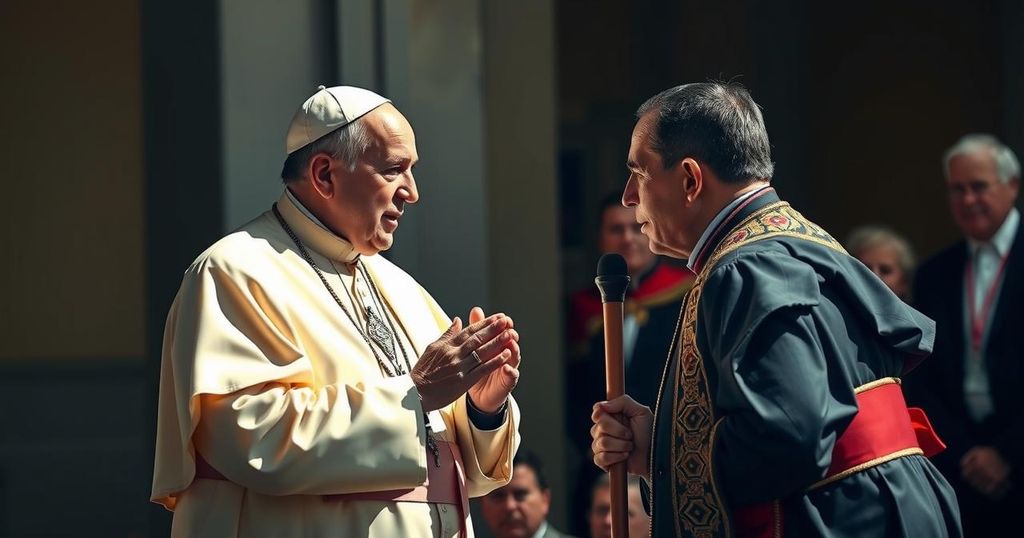Pope Francis commemorated the Treaty of Peace and Friendship between Chile and Argentina, emphasizing the pivotal role of dialogue in preventing conflict. He praised the treaty as a model for peaceful resolutions, criticized the hypocrisy of nations advocating peace while investing in arms, and called for global cooperation to address social and environmental crises. The ceremony highlighted the importance of maintaining friendships with God and each other as foundational for peace.
On the occasion of the commemoration of the Treaty of Peace and Friendship between Chile and Argentina, Pope Francis highlighted the importance of dialogue in preventing armed conflict between the two nations. The treaty, signed on November 29, 1984, resolved a border dispute over the Beagle Channel that had nearly escalated into war in 1978. Facilitated by the Holy See, with Pope St. John Paul II playing a pivotal role in mediation, the agreement stabilized relations in Latin America.
During the ceremony held at the Vatican, attended by representatives from both countries’ embassies and members of the diplomatic corps, Pope Francis reiterated the significance of peace and friendship as guiding principles. He emphasized that the enduring commitment of Chile and Argentina to ongoing negotiations serves as an exemplary model for solving disputes through dialogue rather than force, especially at a time when many global conflicts remain unresolved.
The Holy Father called for recognition of the injustices and environmental challenges persisting today, which continue to drive conflict. He underscored that fostering friendships with God and one another is foundational for achieving lasting peace. He expressed gratitude for the avoidance of war between the two nations and urged a continued spirit of cooperation to address various social and environmental crises affecting populations globally.
Furthermore, Pope Francis criticized the contradiction of nations advocating for peace while simultaneously investing in military arms, labeling such actions as hypocritical. He articulated that this hypocrisy contributes to the failure of fraternity and peace. He concluded his remarks by invoking divine blessings for Argentina and Chile, aspiring for peace initiatives to flourish across Latin America and the world.
The article discusses the historical context of the Treaty of Peace and Friendship, which marked a significant resolution to a longstanding territorial dispute between Chile and Argentina, particularly regarding the Beagle Channel. The treaty emerged after years of tense negotiations and was instrumental in fostering stability in the region. Pope St. John Paul II’s mediation was crucial in leading both nations to a peaceful agreement, emphasizing the role of the Church in promoting dialogue and resolution of conflict. The recent ceremony commemorating this treaty serves as a reaffirmation of these values in the current global context, where many conflicts remain unresolved.
Pope Francis’ remarks during the commemoration of the Treaty of Peace and Friendship underscore the importance of dialogue and commitment in preventing conflict. His appeal to prioritize peace and friendship reflects a broader message advocating for resolution through understanding rather than military means. The Pope’s critique of hypocrisy in peace advocacy highlights the necessity for genuine efforts towards fraternity among nations. Overall, the message is one of hope for future cooperation and a reaffirmation of the successful historical precedent set by Chile and Argentina in resolving disputes peacefully.
Original Source: www.vaticannews.va






